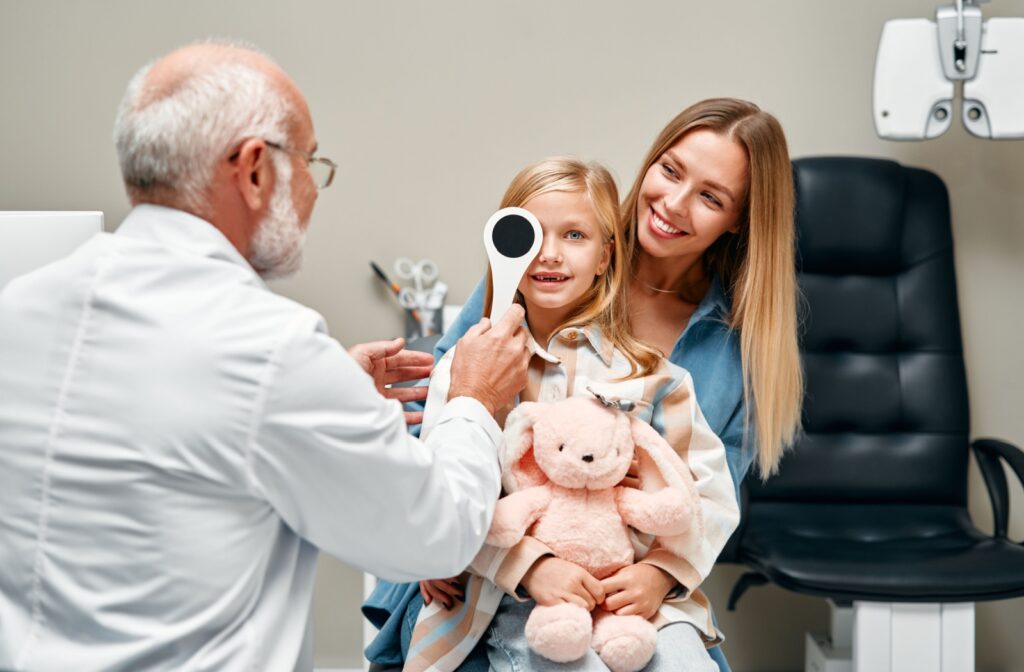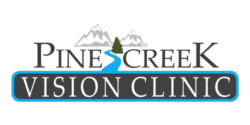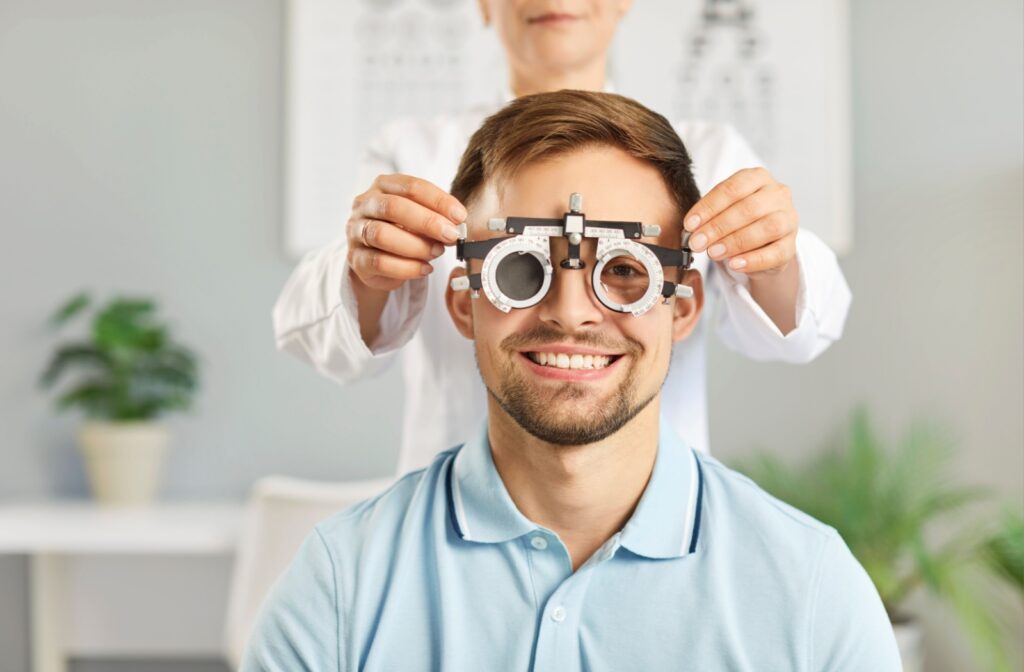We instinctively use our eyes nonstop throughout the day, barely giving them a chance to blink! And yet, when it comes to preserving their health, some people are hesitant to invest time and energy into eye care.
Similar to how we muster the strength to properly invest in our teeth and even our cars with routine oil changes (a nuisance!) our eyes deserve the same amount of dedication and love.
Comprehensive eye exams monitor changes in your vision and eye health. These routine visits can identify changes within the eyes, allowing timely intervention and offering effective preventative care.
Whether it’s your first visit or your tenth, Pine Creek Vision Clinic is here to provide expert care with an approachable, patient-first touch!
All About Routine Eye Exams
A routine eye exam goes far beyond just testing your vision by also evaluating the overall health of your eyes, to verify that no underlying health concerns are developing unnoticed.
Just as regular check-ups are essential for your overall health, comprehensive eye exams are a must for everyone. Even if you don’t wear glasses or contacts, and feel confident that your vision is perfect.
Here’s why:
- Early detection: Many serious eye conditions, like glaucoma and macular degeneration, start with little to no symptoms. Regular visits allow your optometrist to identify and manage these conditions before they progress.
- General health insights: The eyes can show a glimpse of your overall health by revealing signs of general health conditions like high blood pressure, diabetes, and even certain cancers.
- Children’s vision: The eyes play a major role in learning and development. Leaving vision concerns uncorrected can affect learning, social interactions, and confidence.
Staying consistent with eye exams offers peace of mind alongside a solid foundation to help monitor your overall health. Suppose you learn about having a health condition that developed unknowingly, like diabetes, simply because you stay up-to-date with your eye care visits.
Addressing minor concerns now can prevent them from snowballing into serious problems in the future.
How Often Should I Have an Eye Exam?
We encourage our patients to have at least one eye exam every year:
- Children: The eyes grow and develop until early adulthood, meaning children’s vision can fluctuate. Children can have their first eye exam as young as 6 months!
- Adults (18-64): Vision starts stabilizing at around 21 years old, but we still recommend annual eye exams. Age-related vision concerns can start developing at 40 years old, emphasizing the importance of annual visits for timely management.
- Seniors (65+): Certain age-related conditions like macular degeneration and cataracts are more likely to develop as we grow older, necessitating annual check-ins.

In certain cases, others may need more frequent check-ups, such as people with:
- Diabetes
- A family history of glaucoma or other eye diseases
- Vision correction needs (e.g., specialized contact lenses or myopia control therapies)
- Children with special needs who require visual support.
Whether you’re an adult, a senior, or a child, at Pine Creek Vision Clinic, we take a personalized approach to every patient, tailoring each eye exam to meet your specific needs.
Your Guide to Comprehensive Eye Exams
As a patient, routine eye exams are nothing to worry about!
There’s no real way to prepare for this visit. Ideally, it would be great if you had a brief understanding of your family’s general and ocular health history (if not, no worries).
If you wear glasses or contacts, please bring your corrective lenses. This helps us monitor any visual changes, especially if it’s your first visit with us.
Regardless, we understand new experiences may intimidate some people. Knowing what to expect during your routine eye exam can help you feel more at ease.
Preliminary Screening
Your eye exam will begin with a discussion about your overall health, medical history, and any potential concerns you may have. This information helps our team better understand your unique needs and potential risk factors.
Before sitting with your optometrist, our technician will take some baseline measurements:
- Tonometry: We use this infamous air-puff test to assess the pressure inside your eye. This helps check for concerns like glaucoma.
- Autorefractor: This scan estimates your vision prescription and helps your eye doctor determine a “starting point” for the upcoming visual assessment.
- Retinal images: This machine takes a photo of the back of your eye, capturing detailed images of the retina and structures within it, like the macula and optic nerve.
Refraction Test
Inside the exam room, your eye doctor will determine how clearly you can see at various distances.
This includes a standard visual acuity test, where you’ll read from the infamous eye chart, as well as a refraction test to determine if there’s a need for prescription lenses or updates to your current prescription.
Eye Health Assessment
Your doctor will use advanced tools, like a slit lamp and ophthalmoscope, to examine the structures of your eye, including the cornea, retina, and optic nerve. This is where potential issues like glaucoma or cataracts may be detected.
After completing your exam, we’ll review all the findings with you in detail!
Invest in Your Eyes Today
By the end of your comprehensive eye exam at Pine Creek Vision Clinic, you’ll have a thorough understanding of your eye health and any steps needed to preserve or improve your vision.
Regular eye exams are the foundation of lifelong eye care, and we’re here to support you every step of the way! Connect with our team to schedule your next routine eye exam today.



